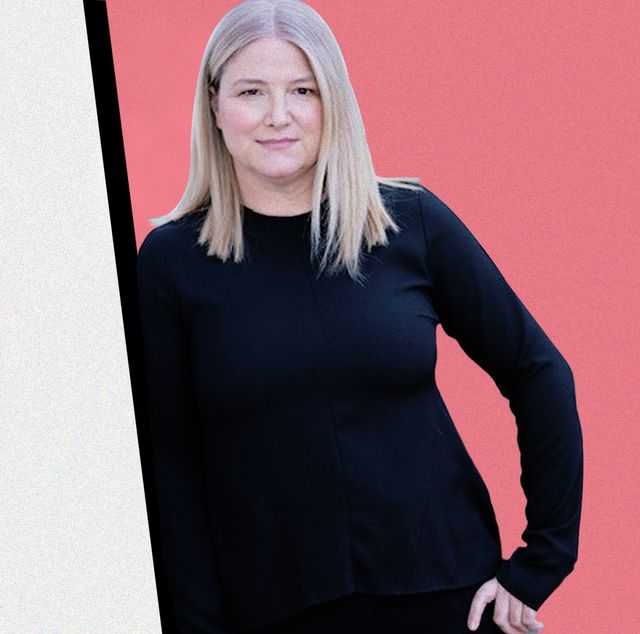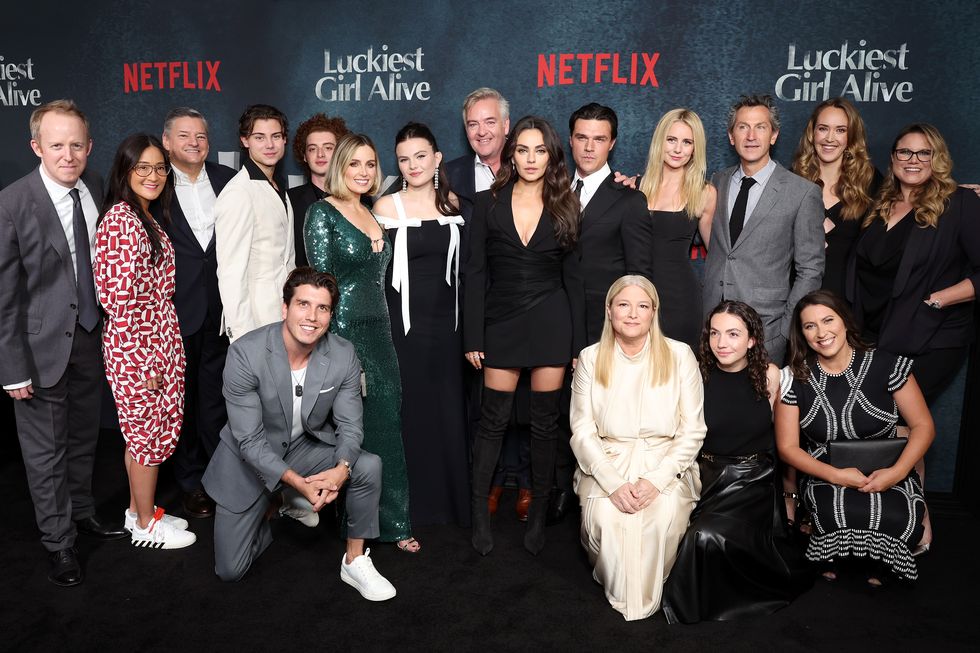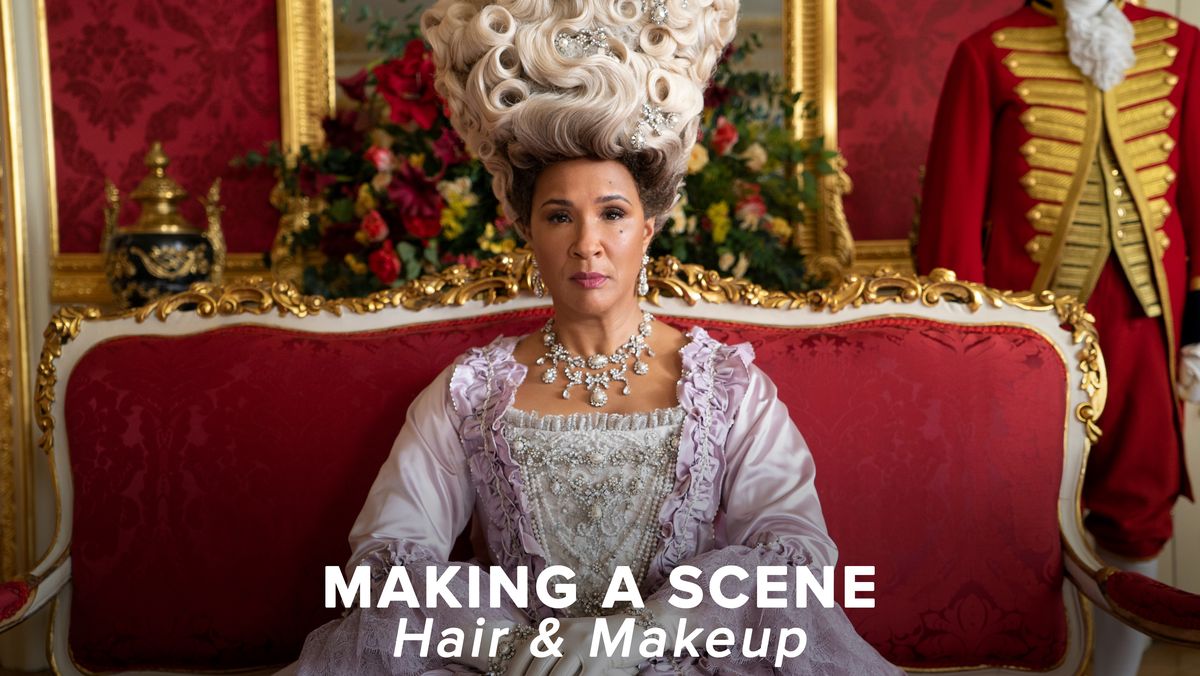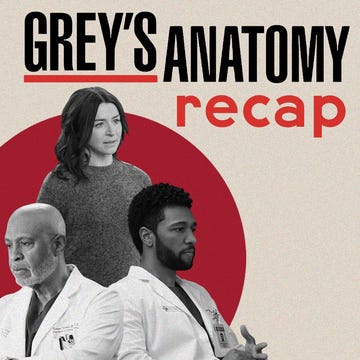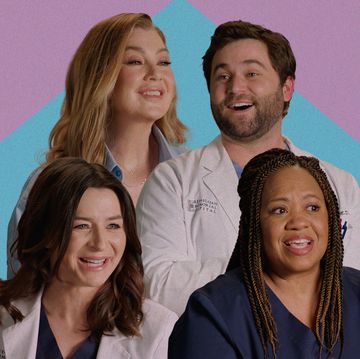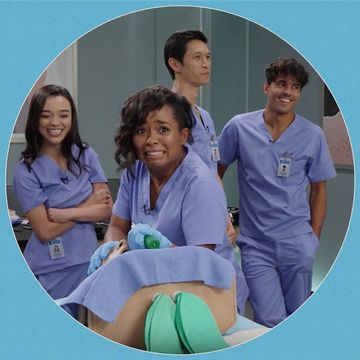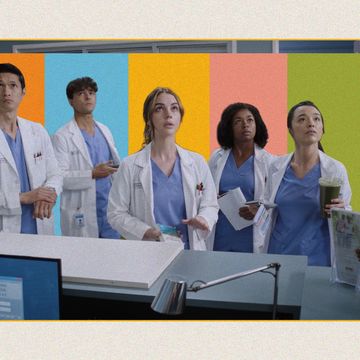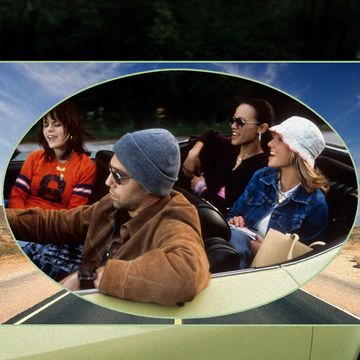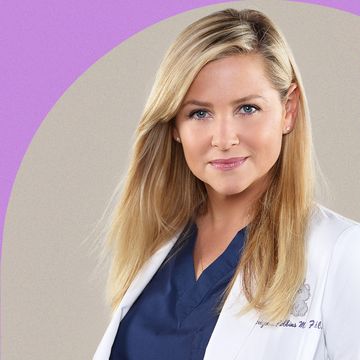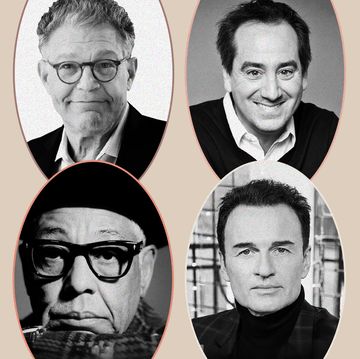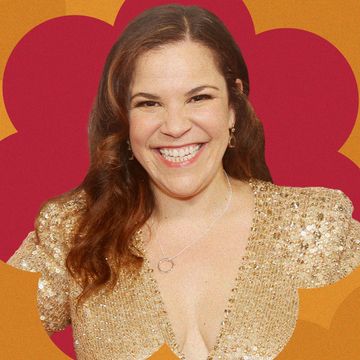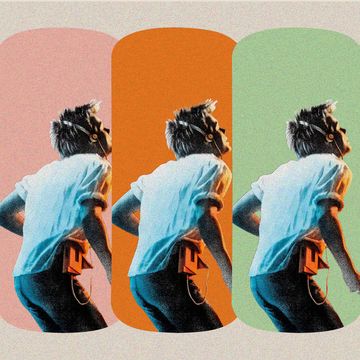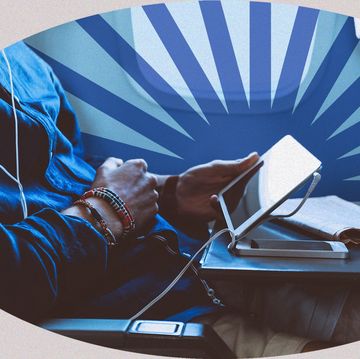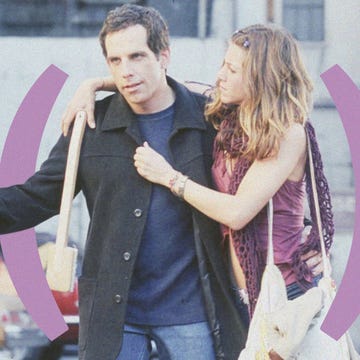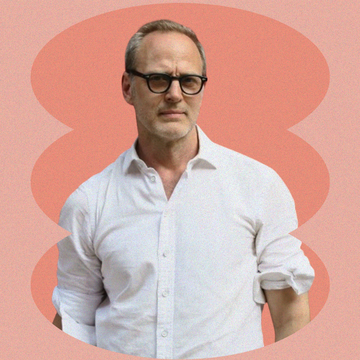“It’s a f--king miracle I’m sitting in Hollywood making movies,” says producer extraordinaire Bruna Papandrea, who was born and grew up in Adelaide, South Australia’s capital. “My biggest passion is access for people that can’t afford it because that was me. My upbringing was about as far away from Hollywood as you could ever imagine. So, [I want to] find pathways to connect people to business. And not necessarily our business but all business.”
If you ever find yourself watching film and television show credits, it wouldn’t be unlikely for Papandrea’s name to pop up on dozens of hits she’s produced under her production company banner Made Up Stories (and previously Pacific Standard with producing partner Reese Witherspoon). We won’t bog you down with an exhaustive list, but the Emmy-winning producer has shepherded some of the most popular series and films of the last decade, including Big Little Lies, Wild, Gone Girl, Pieces of Her, Anatomy of a Scandal, Roar, Wolf Like Me, and Nine Perfect Strangers.
Papandrea’s latest film is the Netflix feature adaptation Luckiest Girl Alive, starring Mila Kunis and based on author Jessica Knoll’s 2015 New York Times best-selling novel of the same name. It’s Made Up Stories’ eighth book-to-screen adaptation since it was founded in 2017, and it’s got at least six more on the horizon. But storytelling — and in particular, adaptations — has been a part of Papandrea’s life for as long as she can remember. And having made her way out of working-class roots in Australia, Papandrea has goals as the founder and CEO of Made Up Stories to use the development and production company to amplify distinctive voices to tell unforgettable stories about the diversity of human experience, driven primarily by multifaceted females on- and off-screen.
Papandrea calls herself a “gatekeeper” and says that she’s committed to walking the walk: hiring women of color, Indigenous women, and women from all socioeconomic backgrounds in production areas and below-the-line roles that have been historically out of reach in Hollywood.
With Luckiest Girl Alive now streaming on Netflix, Papandrea talks to Shondaland about her path to success in Hollywood, the importance of knowing what you are good and not good at, and what it was about Luckiest Girl Alive that made her stick with the eight-year process of getting it made.
VALENTINA VALENTINI: I’d like to start at the beginning. What was your early life like?
BRUNA PAPANDREA: I grew up in housing commission [Australia’s public housing] with my mother, who raised four children on her own. I went to public primary school and high school. And you know how sometimes people say that one teacher can change your life? Well, that’s kind of true for me; we had great music and drama teachers, and I was always a part of the school plays and musicals. It’s how I first got access to “the business,” in fact, because when I was 13, a documentary film crew came to make a film about our low socioeconomic neighborhood, and I stayed in touch with them. My mother immigrated from Italy to Australia when she was 13 and eventually had to leave school and get all kinds of jobs to raise her children on her own, so I grew up very similarly. I laugh now when I look at my kids, twins who are 9, and think about how I started working when I was 13 and have had jobs ever since.
VV: When did you realize that you wanted to work in the entertainment industry?
BP: Well, I was quite academically bright and worked really hard at school. I got into law school, but I dropped out after six months because I couldn’t really afford to stay. So, I went out into the world for a bit and then went back to university to study arts, but I dropped out again. Then I took a series of steps where I tried a lot of things — I worked in theater, some of the best experience I got was working in restaurants, and one of my first real jobs was as an agent for hair and makeup artists and photographers. It was that job where I made a connection that led to work at a commercial production company as an assistant. I was only 25, but I was producing commercials, and then I financed my first short film, and then I moved to America and volunteered on an independent movie and ended up getting a producer credit when I was 27. My first real movie was when I was 28. A friend of mine, Robert Connolly, who has become a very successful director, had been offered this movie, Better Than Sex, and he said he didn’t have time to do it but that they should talk to me. It was a $900,000 movie in Australia, and that was the beginning of my career as a producer.
VV: Was storytelling always a part of your life?
BP: No one’s ever asked me that question. But yeah, it was. When I was very young, about 11, I remember writing what I thought was a novel. It was about Hiroshima because I’d
read Sadako and the Thousand Paper Cranes [by Eleanor Coerr]. I was really affected by this simple story of this girl who was dying of leukemia because of the nuclear bombing of Hiroshima. It stuck with me in a big way. I worked a lot in theater too when I was younger and discovered my love of storytelling there. I really wanted to be an actor; I auditioned for every drama school in Australia. Twice. And I got rejected. Twice. So, that made me realize I wasn’t probably right for acting, so then I wanted to be a journalist. I’d loved 60 Minutes as a kid and thought I could tell stories that way. Then I wrote a play when I was about 16, but I’m not a great writer. That’s why I think I have such a deep admiration for writers — they’re the rock stars to me, not the talent. It’s such a tough thing to captivate someone’s imagination with words. But yes, I was always interested in storytelling, but the path was not what one would think necessarily.
VV: I think it’s a critical moment in one’s life when they realize what they are and are not good at.
BP: I’m really good at identifying a good story. And I’m very passionate about supporting other voices. I will fight to the death for things I love. Luckiest Girl Alive is a great example of that because it’s one of the longest things I’ve ever worked on — it was eight years in the making. This movie is indicative of who I am, which is that if I believe in something, I don’t give up on it. And people often ask me, what does a producer do? And I tell them that it’s my job to be a gatekeeper in some ways; it’s my job to choose who and what and push the whole way. I’m a person that someone has entrusted to get the best version of that story on-screen. My power is being very strong in my beliefs, being a champion. That’s the job of a producer, to champion voices.
VV: What drives you in that pursuit?
BP: The stories of people’s creative journeys are thrilling to me. It’s actually one of the things that really inspires me. And I know this piece is for Shondaland, but it’s funny because Shonda Rhimes is someone I think of often. People always ask that question, “Who would you want to have dinner with?” And I think it’s bigger than that. I’ve read her book [Year of Yes: How to Dance It Out, Stand in the Sun and Be Your Own Person] multiple times, and there have been a whole lot of books about creativity that have inspired me to not give up. There are many ways to get to where you’re going — that’s what I try and tell young people, that it’s not always the obvious path. You don’t need to necessarily go to a f--king Ivy League school. Access is such a big problem in our business.
VV: What was important to you back when you first started producing, and what is important to you now? Has it changed?
BP: I think it was a simpler kind of equation, but it was “What inspires me?” What hasn’t changed is always trying to find things that you feel like you can’t compare to something else. After Big Little Lies, everyone was like, “We want Big Little Lies.” I was like, “No, you don’t; you want what’s next.” One of my first big movies was about zombies. I’d never even seen a zombie movie — I just loved the voice of it. So, that still excites me and inspires me, that original voice. A major change for me is this focus on representation both behind and in front of the camera. It needs to continue to evolve, and it’s not just about women — it’s about socioeconomic diversity, gender diversity, racial diversity. I’m trying to find a piece right now with a woman who has a disability as the star because I continue to want my work to reflect the world we live in.
VV: Having been doing this for 20-plus years, what’s your assessment of the industry right now?
BP: Listen, we’ve been fortunate in translating a lot of work onto the screen in the last year, but I still think there is an enormous double standard. We can’t sell this one story because it’s small, and in the current landscape, there is just so much volume. I think people want a big splash, and we make those, but the reason I make those things is so I can make the other, smaller things. And the people at the top say they want change, but then they don’t walk the walk.
VV: And that’s what you’re trying to do with Made Up Stories?
BP: As soon as Reese and I ended Pacific Standard and went our separate ways, I was trying to work out what was next for me. I wanted to have something that would reflect all of the things that I am, and within a year, Made Up Stories was born out of that. I didn’t really want to be answerable to anyone, and to just listen to my own instincts. Our focus has been putting women at the center of stories, and it was important to me to also make sure that women could tell any story they wanted, and we’re still building that, but it’s always been our main ethos. I think we have two men at the company with 14 women because I feel like it’s my job to build a mentorship for the next set of producers or writers or whatever they want to be.
VV: You said that your biggest passion is to help get access for people who can’t afford it. What does that look like, concretely?
BP: Made Up Solutions is still in a formalizing stage, and we’re looking for someone to run it, but it will be a foundation to do exactly that. For example, we will create a paid apprenticeship program so that someone has a pathway into a business they’re passionate about. I honestly think it is about that first opportunity, that first thing on your résumé. But you need to be paid to do that. It’s the people who can afford to do internships that often don’t need them. The only reason I ever got anywhere in my life is because I just worked nights so that I could work for free in this industry. That’s how I got my credit. But our next step in growth is this foundation.
VV: You talked about Luckiest Girl Alive taking a long time to get made. Why did you want to stick with it?
BP: I think Jessica Knoll’s voice is so distinctive. Reese and I read the book at the same time, and we just couldn’t stop thinking about it. Then other women in the business started to talk about it with me, and I could just sense that if we could get this right, it would be a big conversation. It’s a look at the way we repress trauma in a form that I had never seen done before. When we optioned it, we did not realize that Knoll had written an essay for Lenny that talked about her own experience of sexual trauma. It’s been one of those experiences where I always knew in my heart that it would find its way, but I knew it would take some time because it deals with some pretty complex issues. Plus, there was no way anyone was going to make that movie without a big enough name. There was a very short list of actresses. It was in the studio system for a long time. I didn’t believe it would get made there, and finally, when it ended up at Netflix, they were the ones that got behind it.
There are the things that we in this industry all need to be better at. We can all say we’re going to make things that reflect our society more, but that’s still not enough, because people still have to buy that thing. I can develop, and I can get great talent attached, but others need to walk that walk too. So, I’m trying to keep that pressure on to make us all walk the walk.
Valentina Valentini is a London-based entertainment, travel, and food writer and is also a senior contributor to Shondaland. Elsewhere, she has written for Vanity Fair, Vulture, Variety, Thrillist, Heated, and The Washington Post. Her personal essays can be read in the Los Angeles Times and Longreads, and her tangents and general complaints can be seen on Twitter at @ByValentinaV.
Get Shondaland directly in your inbox: SUBSCRIBE TODAY
